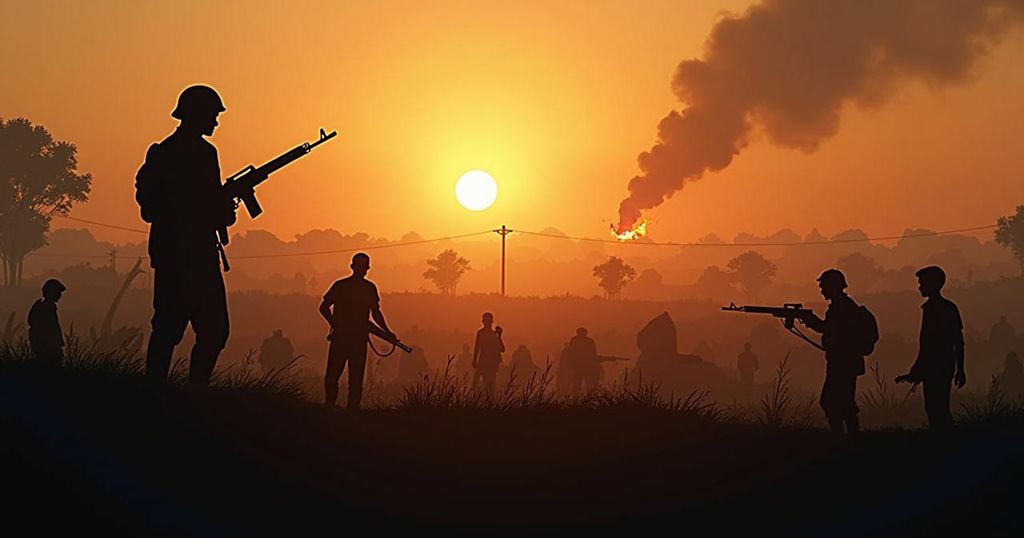Human Rights Watch has reported that Rwanda’s army and a militia it supports shelled camps for displaced people in eastern Congo, with both parties implicated in violent crimes including murder and rape. The eastern Congo region, rife with conflict and over 120 armed groups, has seen significant violence, resulting in millions of displaced individuals. The M23, a Tutsi-led rebel group, continues to pose a threat, raising allegations against Rwanda for its involvement in supporting the rebels. A case against Rwanda has been initiated by Congo in a regional court, while President Tshisekedi has called for sanctions against Rwanda during a recent U.N. address.
A recent report from Human Rights Watch has surfaced allegations that the Rwandan army, along with a supported militia, engaged in shelling camps for displaced individuals in eastern Congo. The report draws attention to the dire humanitarian situation in the region, highlighting that both the Rwandan forces and the Congolese army have been implicated in the killing of residents, instances of rape, and the hindrance of humanitarian aid efforts. The tumultuous eastern Congo region has been plagued by violence, as over 120 armed factions vie for control over territory, land, and mineral wealth, while some groups endeavor to protect their local communities. One of the notable armed groups in this conflict is the March 23 Movement (M23), formed predominantly by ethnic Tutsis and having broken away from the Congolese military over a decade ago. The M23 staged a significant assault in 2012, overtaking Goma, the provincial capital, which remains under threat from the group once more. The Congolese government accuses Rwandan forces of engaging in aggression and contravening human rights laws, with reports from U.S. and U.N. experts suggesting Rwandan support for the M23. While Rwanda has disputed these accusations, it did acknowledge in February the presence of its troops and missile systems in eastern Congo, citing security concerns over the congregation of Congolese forces near the border. A recent estimate by U.N. experts placed the number of Rwandan troops in the eastern Congo area at approximately 3,000 to 4,000, collaborating with the M23 forces, which have been making considerable territorial gains. On Thursday, a regional East African court commenced proceedings in a case initiated by Congo against Rwanda, alleging violations related to sovereignty and territorial integrity due to Rwandan military involvement on Congolese soil. Additionally, in a recent address at the U.N. General Assembly, President Felix Tshisekedi of Congo called for sanctions against Rwanda, attributing the country’s support for the M23 to the ongoing violence and instability in the region.
The situation in eastern Congo has been characterized by enduring violence and humanitarian crises stemming from the conflict among numerous armed groups. The region is strategic for its wealth in minerals, drawing various factions into the struggle for control. The M23 group, significant among these factions, comprises ethnic Tutsis who have historical ties to Rwanda, exacerbating tensions in the area. The involvement of Rwanda in Congo has raised allegations of aggression and violations of international law, contributing to a complex political landscape that has led to internal displacement for millions.
In summary, the conflict in eastern Congo remains a multifaceted issue involving allegations of grave human rights abuses from both Rwandan and Congolese forces. The M23’s resurgence and Rwanda’s military presence continue to stir international concern as these developments further complicate the humanitarian situation, prompting calls for accountability and action from the international community.
Original Source: www.washingtonpost.com






